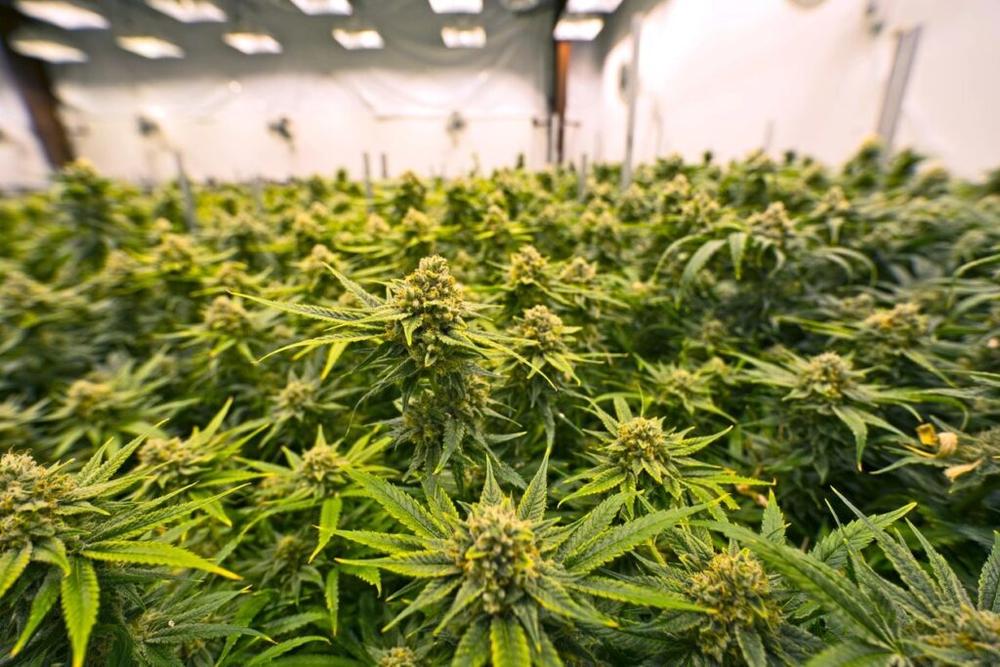
Caption
A crop of medical cannabis is seen. In July 2023, a medical cannabis producer — one of two so far licensed in Georgia — opened a dispensary near Savannah.
Credit: Capitol Beat News Service

A crop of medical cannabis is seen. In July 2023, a medical cannabis producer — one of two so far licensed in Georgia — opened a dispensary near Savannah.
ATLANTA — One of the two medical cannabis manufacturing companies awarded licenses to operate in Georgia thus far opened its first dispensary Wednesday during a dedication ceremony in Pooler.
Botanical Sciences began growing marijuana earlier this year and converting the leafy crop into low-THC cannabis oil at a plant in Glennville.
The General Assembly passed legislation in 2019 legalizing the cultivation of marijuana in Georgia under close supervision and the production of cannabis oil to treat patients suffering from a wide range of diseases.
But state licensing has been slowed by lawsuits from companies that were denied licenses and charged that the selection process was flawed.
“Patients throughout the state have been waiting for this critical form of medicine for years, so being able to provide them with access through our Pooler dispensary is a key milestone for our company,” Gary Long, CEO of Botanical Sciences, said Wednesday.
“We look forward to being part of the Pooler community and offering patients the exceptional treatment, information and service they deserve.”
The state agency that oversees the medical cannabis program has granted Class A manufacturing licenses thus far to Botanical Sciences and Trulieve Georgia, allowing them to grow marijuana in up to 100,000 square feet of indoor space. Four other Class B licenses for 50,000 square feet have yet to be awarded because of the legal conflict.
Trulieve has opened dispensaries in Marietta, Macon, Newnan, and Pooler. Botanical Sciences plans to open five more dispensaries soon in Cobb, DeKalb, Henry, and Richmond counties.
Separate from those dispensaries, the 2019 law also authorizes independent pharmacies to sell cannabis oil to eligible patients.
The list of diseases that qualify patients for cannabis oil includes end-stage cancer, seizure disorders, AIDS, post-traumatic stress disorder, Parkinson’s disease, multiple sclerosis, sickle-cell anemia, autism and Alzheimer’s disease.
This story comes to GPB through a reporting partnership with Capitol Beat News Service.